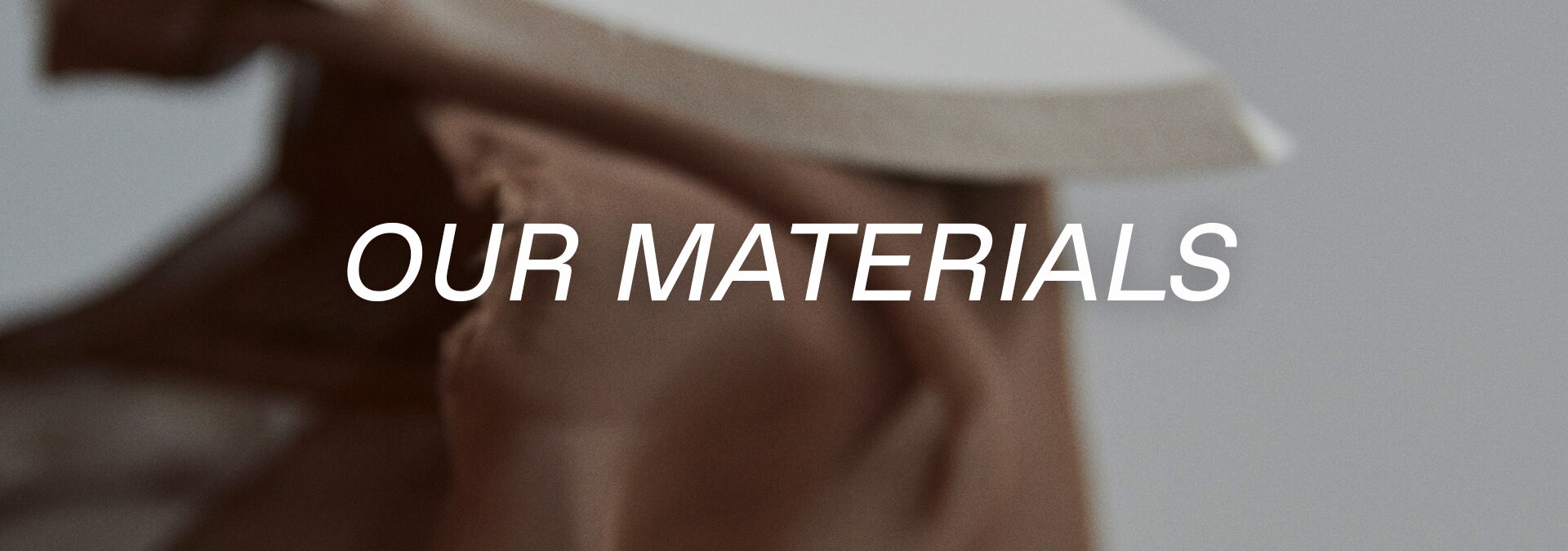
HOW WERE OUR CLOTHES MADE?
Every item from our collections tells a story, from the sketch it started out as to the fibres it’s made with, from the people who create it to those who wear it.
We want our clothes to make a big impact on the way we feel, move and act – not on the environment.
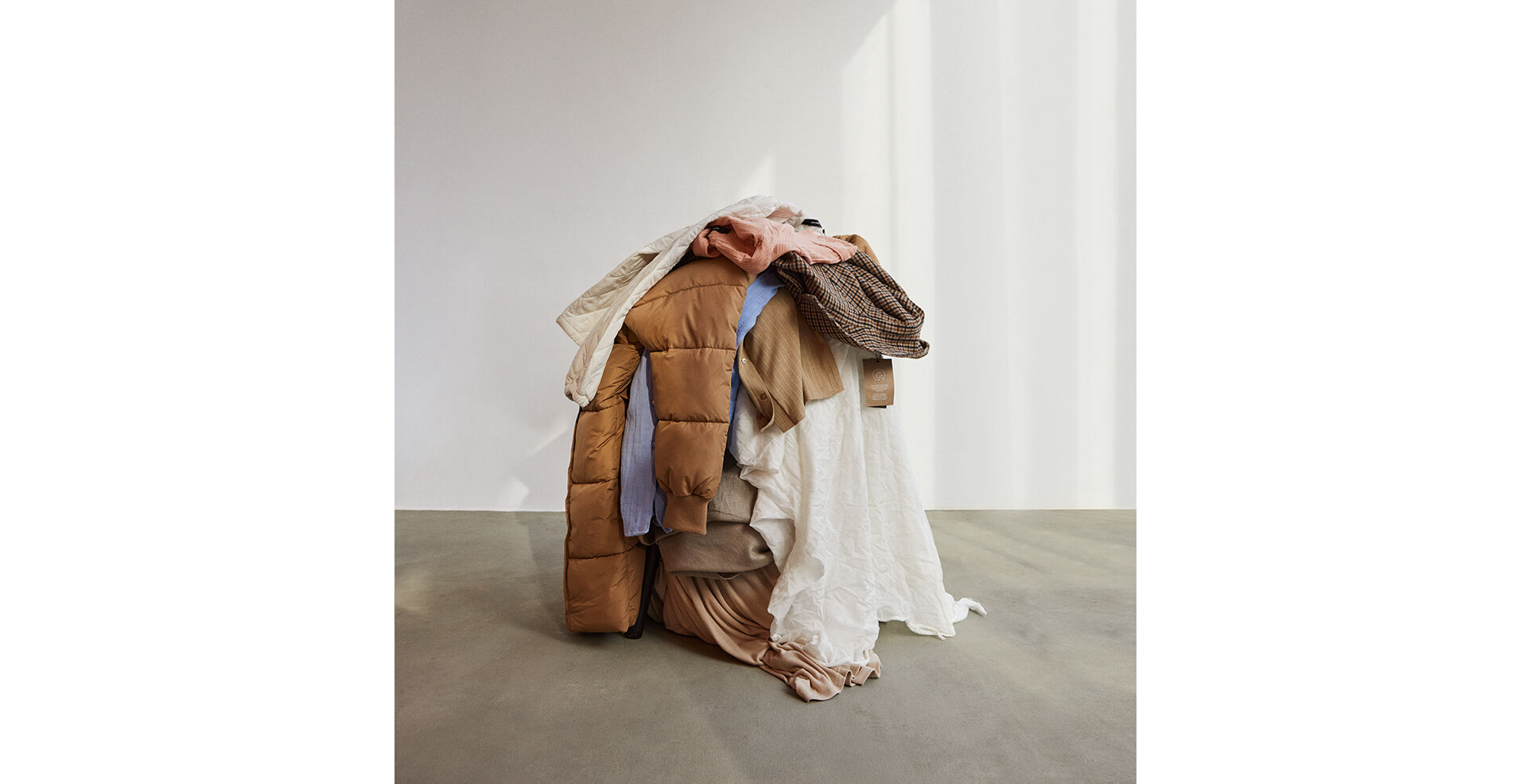

We will increase the use of more sustainable materials year after year until all our products are circular by design.
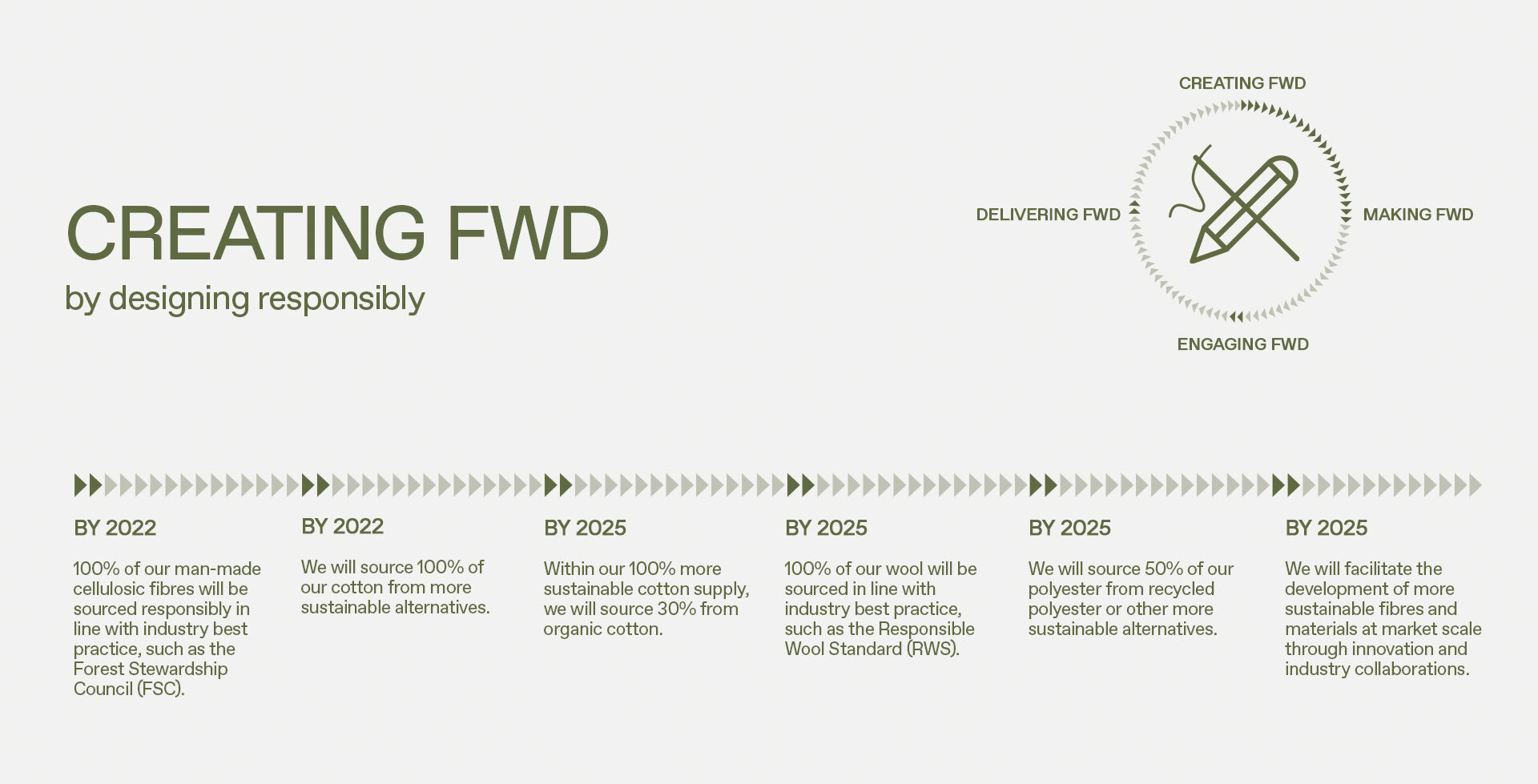
PREFERRED MATERIALS

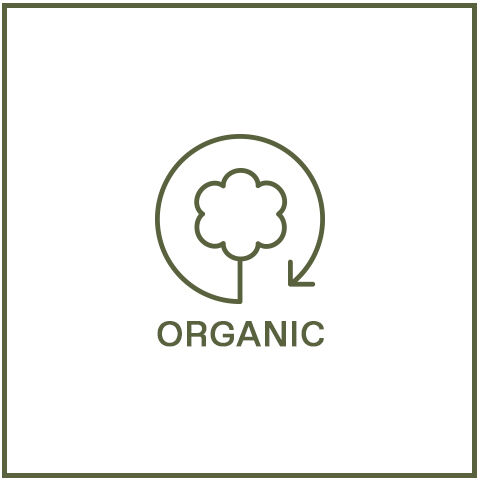

ORGANIC COTTON
Organic cotton is grown without the use of harmful chemicals like pesticides and fertilizers, and its seeds are not genetically modified. It is also the only cotton standard that is 100% GMO free. Aside from the environmental benefits of organically grown cotton, the absence of hazardous chemicals also helps to improve the work environment of the local farmer. Organic cotton can be traced directly back to the field, as it helps sustain the land it is grown on through crop rotations, and uses less energy and water.
-
LINEN
Linen is a textile made from the fibres of flax plants, and is one of the best fabric options for many reasons. It is strong, breezy, anti-bacterial, and gentle on your skin and the planet. The production of linen requires virtually no water, and emits four times less carbon by pound of fibre than cotton.
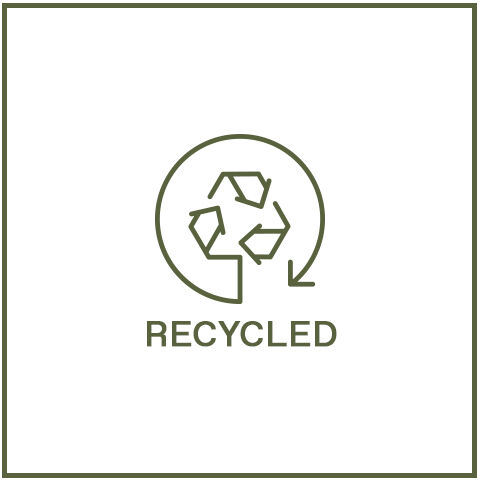

RECYCLED POLYESTER
Recycled polyester is a synthetic material made from waste items such as plastic bottles, used polyester garments and fabric leftovers from manufacturing. E.g.: 1 t-shirt can be made from 2 plastic bottles. Recycling polyester saves natural resource and reduces textile waste.
-
RECYCLED COTTON
Recycled cotton is made from manufacturing waste like leftover fabric scraps or from used cotton garments and textiles that would otherwise go to landfill. Recycling cotton reduces the waste of a natural resources like water (recycling 1 ton of cotton can save 275,000 litres of water and requires no new farmland.) This option allows us to have all the same benefits as virgin cotton, minus the environmental impact.
-
RECYCLED WOOL
Recycling wool saves natural resources such as water and energy. Instead of shipping wool to be disposed of at landfills, recycling wool helps reduce textile waste. Recycled wool is reborn and later refashioned into new clothes.
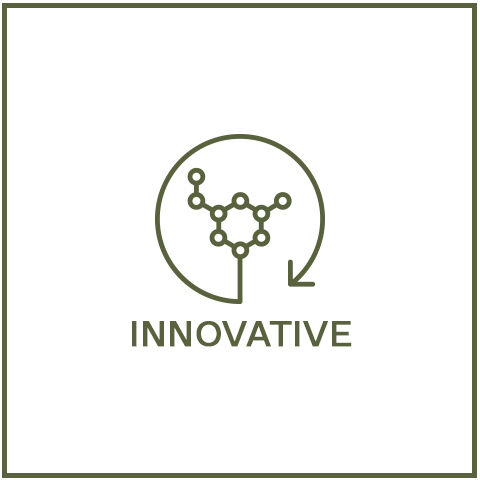

TENCEL™️ LYOCELL
TENCEL™️ lyocell is a semi-synthetic fibre made from renewable wood materials, manufactured from fast-growing trees such as eucalyptus. Unlike most fabrics, TENCEL™ production is done without any pesticides or insecticides. TENCEL™ lyocell is also fully biodegradable and economical in terms of energy and natural resources. With properties almost identical to cotton, this fabric is also ultra-soft on skin, absorbs moisture and regulates temperature.
-
TENCEL™️ MODAL
TENCEL™ modal fibres are extracted from naturally grown beech wood by an eco-friendly, integrated pulp-to-fibre process using self-sufficient energy that recovers byproducts coming from wood components. Considering their natural sources, all TENCEL™ standard modal fibres are biodegradable and compostable. Wood-based fibres possess high-flexibility properties that create long-lasting textiles. These fibres feel twice as soft as cotton and offer long-term softness, even after repeated wash cycles.
-
LENZING™️ ECOVERO™️
LENZING™ ECOVERO™ viscose fibres are made from sustainably sourced, renewable wood materials and pulp. Derived from semi-natural forests or sustainably managed farms, these fibres are controlled and regulated in accordance with stringent wood sourcing policies. Certified by the EU Ecolabel, these fibres meet strict guidelines in terms of eco-friendly low impact production.
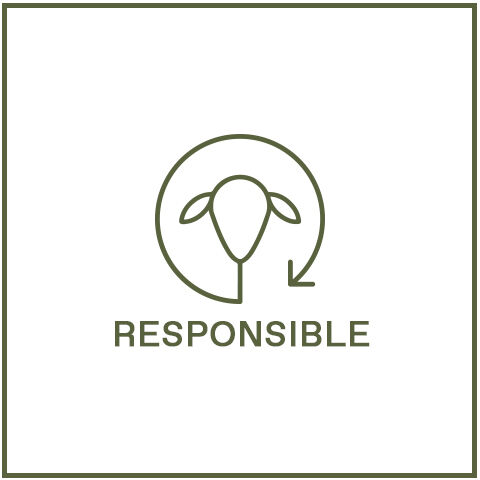

RESPONSABLY SOURCED DOWN
At VERO MODA, we only use responsibly sourced down in our products.
-
RESPONSABLY SOURCED WOOL
As part of the BESTSELLER group, by 2025, we are committed to get 100% of our wool using the industry’s best practices, as per the Responsible Wool Standard (RWS).
We’re heading in the right direction, but we’re not there yet.
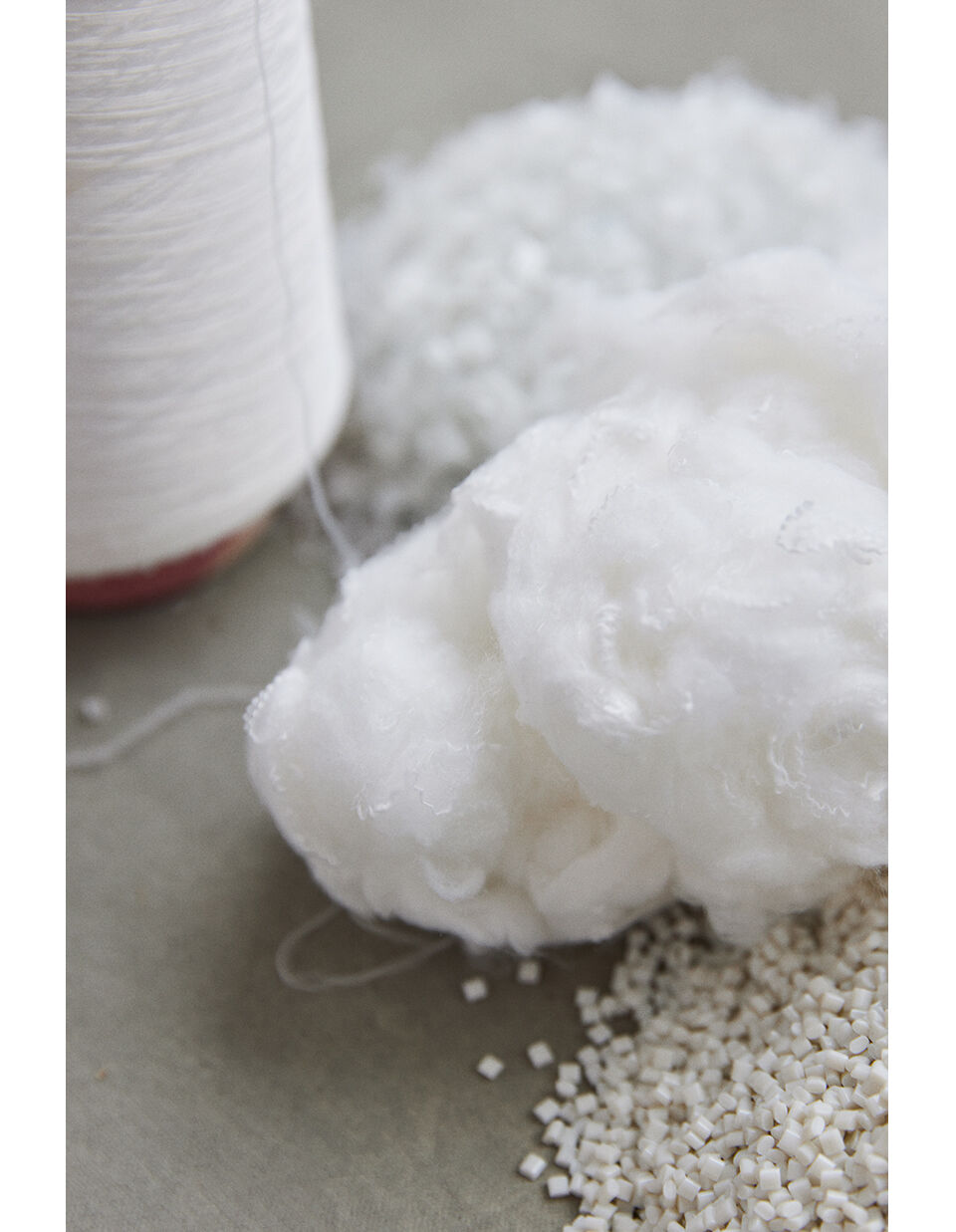
By being open and honest, we’re holding ourselves accountable for our actions, goals and processes – weaving integrity into the fabric of our business.
Our journey
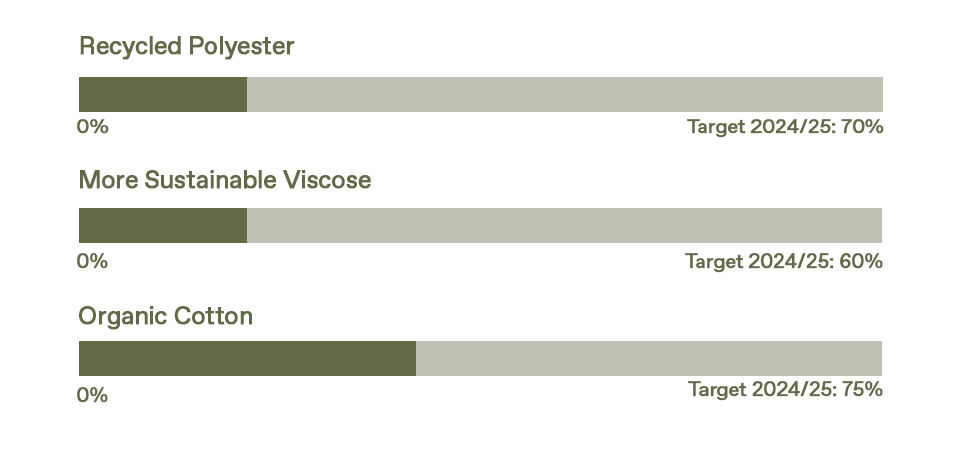
One of our goals is to use even more materials made with sustainable fibres. As illustrated above, 20% of our polyester is recycled, 20% of our viscose is more sustainable, and 40% of our cotton is organic. By 24/25, we want to raise our percentage of recycled polyester to 70%, more sustainable recycled viscose to 60% and organic cotton to 75%.
CERTIFICATIONS

We’re proud of the steps we’re taking to make our fashions and our organization more sustainable.
The EU Ecolabel
The EU Ecolabel is only awarded to products that meet high environmental requirements. The entire life cycle of the product – from raw material and production, to use, disposal and recycling is included in the assessed requirements set by the EU Ecolabel.
Therefore, when you buy a VERO MODA garment with an EU Ecolabel, you know it’s been made in line with high environmental requirements to achieve more sustainable fibre production, less polluting production processes, and regulated use of hazardous substances.
Moreover, it’s also designed to be more durable.

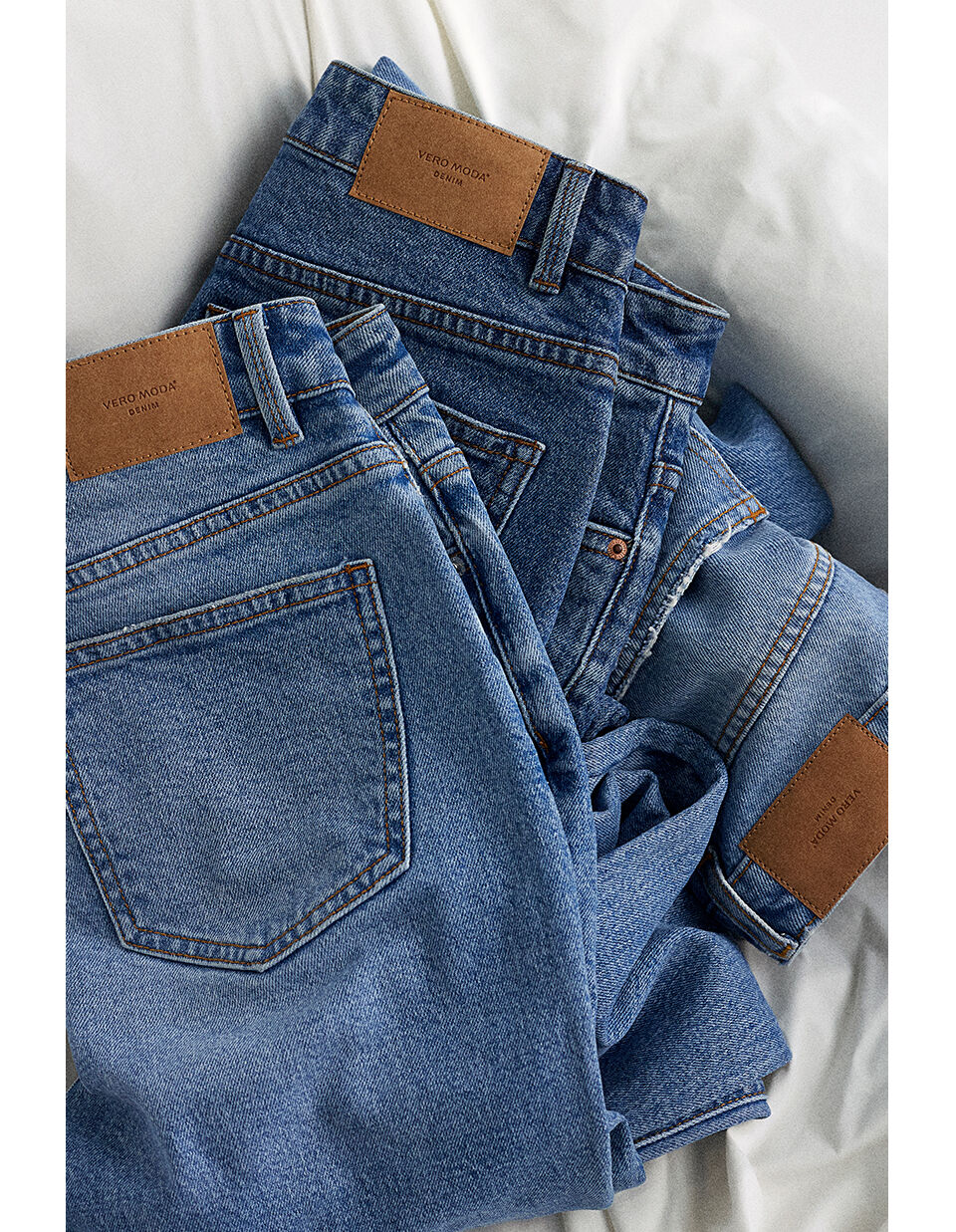
THE JEANS REDESIGN
We’re all waking up to the fact that the whole fashion industry needs to change how clothes are produced by taking action to address the current problems of waste and pollution.
Launched by the Ellen MacArthur Foundation – one of the leading organizations accelerating the transition to a circular economy – the Jeans Redesign initiative provides guidelines that tackle these issues.
Created by over 80 denim experts, the guidelines clearly set out minimum requirements for:
- Garment durability
- Material health
- Recyclability
- Traceability
The Jeans Redesign currently has over 65 leading brands, manufacturers, and fabric mills, transforming how jeans are made. Beginning in 2021, VERO MODA are one of several international fashion brands that will be producing jeans to these standards at scale.
What it means to you is that every pair of VERO MODA jeans with the Jeans Redesign logo follow the principles of a circular economy, ensuring positive impacts on the environment, society, and health of the people working in the industry.
Read more about the Jeans Redesign project here.